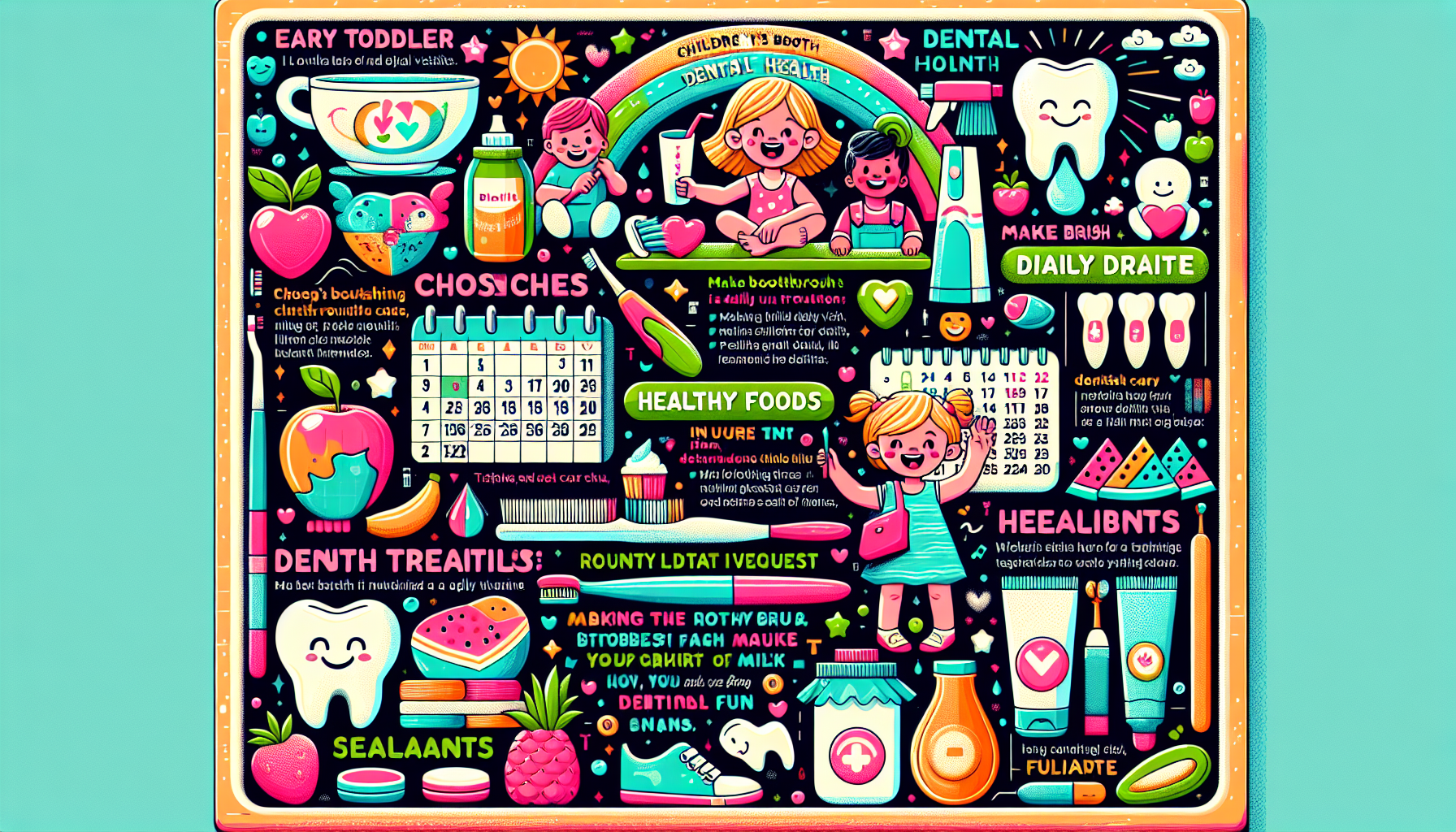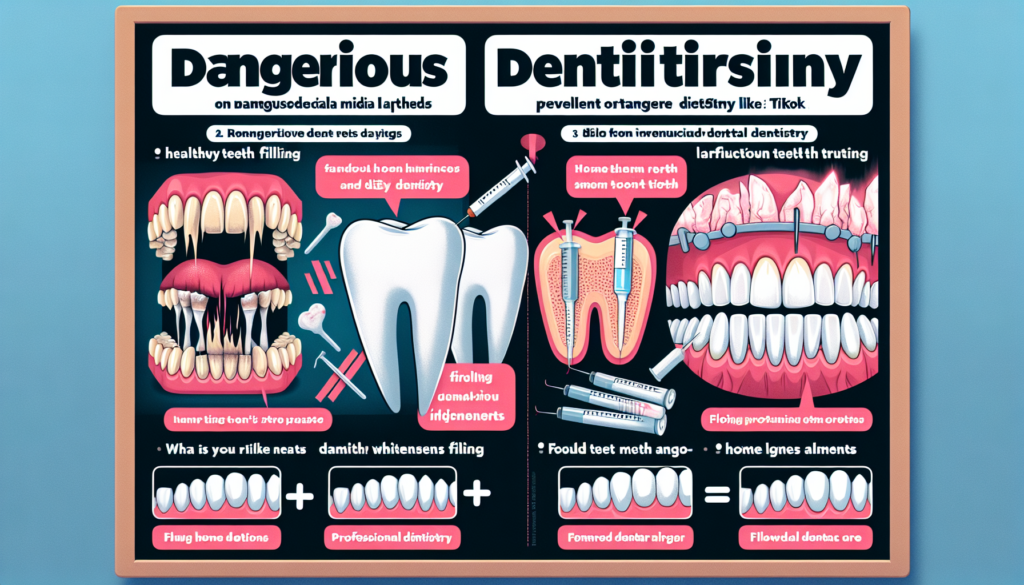Essential Dental Health Tips for Parents This Dental Health Month
Just like small daily habits can transform your life, consistent dental habits can create a lifetime of confident, healthy smiles. Learn more in The Habit Method.
Introduction: The Importance of Dental Health Month for Kids
February is National Children’s Dental Health Month—a time when parents, caregivers, and dental professionals work together to build strong oral health routines for kids. Children who practice good oral hygiene early in life are more likely to maintain healthy smiles as adults. Unfortunately, dental caries (tooth decay) remains the most common chronic disease in children according to the Centers for Disease Control and Prevention (CDC).— CDC, 2024
As a parent, your influence is powerful. The habits you model—like brushing, flossing, and making dental visits fun—help your child view oral care as a normal, enjoyable part of daily life. This Dental Health Month, let’s explore the essential ways you can protect your child’s growing smile.
Start Early: The Benefits of Early Childhood Dental Care
Establishing dental care early helps detect potential problems before they become complex—or costly.
- Schedule the first dental visit when your child’s first tooth appears, or no later than their first birthday. Early visits ensure proper development and get kids comfortable in a dental environment.— American Academy of Pediatric Dentistry (AAPD)
- Prevent tooth decay early. Even baby teeth are vulnerable to cavities, which can affect permanent teeth alignment.
- Help reduce anxiety. Regular visits allow children to bond with the dental team, making future appointments more positive.
Pediatric dentists are specially trained to care for kids’ unique oral health needs—from baby teeth to adolescence—and can guide you on fluoride use, teething, and oral hygiene routines.
Brushing and Flossing Tips for Kids: Building Daily Habits
Developing daily routines around brushing and flossing lays the groundwork for lifelong oral health. According to the American Dental Association (ADA), brushing twice a day with fluoride toothpaste helps remove plaque and strengthen enamel.— ADA
- Teach proper technique. Show children to brush in gentle circles, covering all tooth surfaces for two minutes.
- Choose the right tools. Use a soft-bristled, child-sized toothbrush. For kids under 3, use a smear of fluoride toothpaste (about the size of a grain of rice). For older kids, a pea-sized amount works best.
- Make it fun. Play a two-minute song, create sticker charts, or brush together as a family to build consistency.
- Don’t forget to floss. Begin flossing as soon as your child’s teeth touch. Use child-friendly flossers or gentle waxed floss.
Transforming toothbrushing into a shared, joyful activity encourages cooperation and consistency, essential for long-term success.
Nutrition and Dental Health: Foods That Strengthen Teeth
What your child eats affects not only their growth but also their smile. Excess sugar fuels harmful bacteria that produce acids leading to decay. During Dental Health Month, focus on foods that support strong, cavity-resistant teeth.
- Encourage tooth-friendly foods: crunchy fruits and vegetables (like apples and carrots), dairy products, and lean proteins supply calcium, phosphorus, and vitamin D for stronger enamel.
- Limit sugary snacks and drinks: juice, soda, and sticky snacks cling to teeth, increasing cavity risk. Replace sweet drinks with water or milk.
- Offer balanced meals: well-rounded nutrition enhances saliva production—one of nature’s best defense mechanisms against acid attacks.
Teaching kids to make healthier food choices gives them both energy and smiles that shine.
Preventing Cavities and Common Dental Problems
Dental caries can develop quickly in children. Prevention is key—parents can take simple steps to minimize risk.
- Fluoride: Strengthens enamel and reduces decay risk. Most communities supply fluoride through tap water, and dentists may recommend topical treatments during checkups.
- Dental sealants: Thin, protective coatings applied to the chewing surfaces of molars. The CDC reports that children with sealants have three times fewer cavities than those without.— CDC, 2022
- Watch for early signs: White or brown spots, sensitivity to temperature, or persistent bad breath may indicate early decay or gum inflammation.
- Hydrate frequently: Encourage water throughout the day to rinse away food debris and maintain saliva flow.
The Importance of Regular Dentist Visits for Kids
Routine visits every six months allow early diagnosis and preventive care, creating a foundation for a lifetime of dental wellness.
- Know what to expect: Pediatric cleanings, X-rays, and exams allow your dentist to track development and address any issues early.
- Recommended frequency: Every six months, or more often if risk factors like frequent snacking or past cavities exist.
- Managing anxiety: Let your child bring a favorite toy or book. Some dental offices use “tell-show-do” methods to gently familiarize children with tools and procedures.
Positive dental visits help your child grow up seeing oral care as routine, never scary.
Encouraging Lifelong Oral Hygiene Habits
Parental modeling is one of the strongest factors influencing children’s long-term habits. When kids see caregivers prioritizing oral care, they mirror those actions naturally.
- Model consistency: Brush and floss with your child each morning and night.
- Make it a family routine: Create shared bathroom routines—parents brushing first to demonstrate technique.
- Use praise effectively: Positive reinforcement strengthens commitment. Celebrate milestones like cavity-free visits or independent brushing.
Over time, these interactions transform daily brushing into a positive family ritual, teaching gratitude for one’s body and self-care.
Celebrate Dental Health Month with a Brighter, Healthier Smile
This Dental Health Month, take simple but meaningful steps to secure your child’s oral health. Schedule a dental checkup, build healthy family routines, and make every brushing session a moment of care. Your daily actions nurture confidence and wellbeing that extend far beyond teeth.
Healthy habits create healthier families. Discover more about building consistency and positive routines in The Habit Method.
Frequently Asked Questions
1. When should my child visit the dentist for the first time?
The American Academy of Pediatric Dentistry recommends scheduling the first visit either by age one or within six months of the first tooth erupting. Early visits create comfort and help identify developmental concerns early.— AAPD
2. How can I make brushing fun for my child?
Turn it into a game—use a timer, play a two-minute song, or use colorful toothbrushes. Praise their effort rather than perfection to build a positive routine.
3. Are dental sealants really necessary?
Yes. Sealants provide a protective barrier on molars, preventing food and bacteria from settling into deep grooves. They’re one of the most effective forms of cavity prevention for kids.
4. What type of toothpaste is best for children?
Always choose fluoride toothpaste. For children under three, use a rice-sized smear; for those over three, a pea-sized amount. Check for ADA approval on the packaging to ensure safety and effectiveness.
5. How often should children have dental checkups?
Most children benefit from professional exams and cleanings every six months. However, your dentist may recommend more frequent visits based on your child’s cavity risk, hygiene habits, or orthodontic needs.
Post Disclaimer
DentalUp is for educational purposes only and cannot accept personal dental information such as x-rays, photos, or treatment details. See full disclaimer here.





